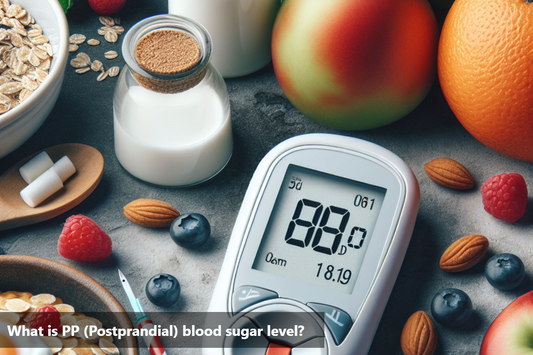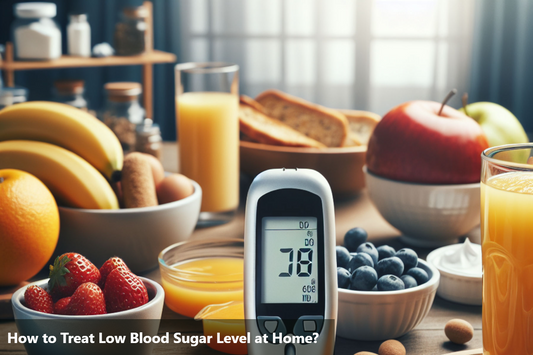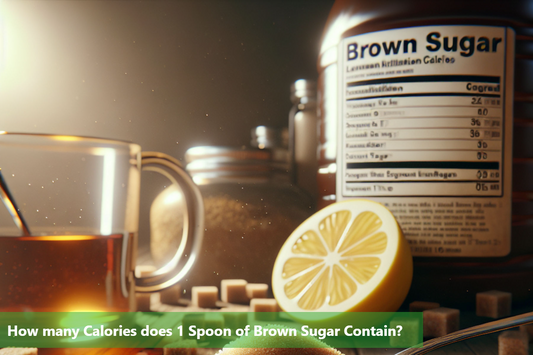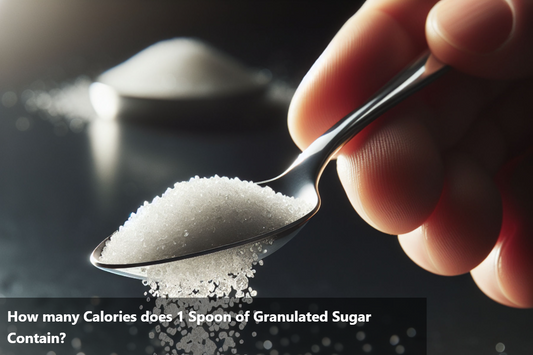Our body runs on blood sugar, also called glucose. Our blood sugar rises and falls throughout the day depending on when and what we eat and how active we are. It's important to keep our blood sugar at healthy levels so our organs and tissues can work properly.
This article explains why healthy blood sugar matters, focusing on what happens when levels drop too low. It's normal for blood sugar to go up and down some. But it's crucial to notice when it dips too low. Low blood sugar is called hypoglycemia, and it can cause symptoms that get in the way of daily life.
Understanding why healthy blood sugar matters helps us see how our body depends on a careful balance. Whether you have diabetes or just want to stay well, knowing the signs of low blood sugar is key. Spotting and treating these symptoms quickly is vital for how we feel and function.
Let's look closer at why catching and addressing low blood sugar fast really matters for our health and wellbeing.
Understanding Low Blood Sugar Levels
Low blood sugar levels, also known as hypoglycemia, happen when the amount of sugar in the blood goes below normal. Sugar, or glucose, is what gives our body energy, and various things can affect how much of it we have.
Severity Levels:
Mild: 55-70 mg/dL
Moderate: 40-54 mg/dL
Severe: Below 40 mg/dL
There are different reasons why blood sugar levels can become too low. For people with diabetes, taking insulin or certain medications might cause too much of a decrease in blood sugar. Missing meals or eating irregularly can also lead to low blood sugar because our body needs a steady supply of nutrients to keep sugar levels stable.
Knowing why low blood sugar happens is important in understanding and dealing with its symptoms. Too much physical activity, especially without eating enough, can upset the balance in our body. Drinking alcohol, especially on an empty stomach, can also make blood sugar levels drop.
Causes of Hypoglycemia
Medications: Insulin or oral diabetes medications (e.g., sulfonylureas) taken in excess.
Skipping Meals: Not eating enough or delaying meals.
Excessive Physical Activity: Increased activity without adjusting food intake or medications.
Alcohol Consumption: Especially on an empty stomach.
Illness or Stress: These can affect how the body uses insulin and glucose.
It's crucial to understand that low blood sugar isn't only a concern for people with diabetes. Anyone, no matter their health, can experience it. Learning about what causes these changes helps people make smart choices about how they live, what they eat, and how they take care of themselves. In the next part, we'll look at the common signs of low blood sugar and how they show up in our everyday lives.
Common Symptoms of Low Blood Sugar
Knowing when your blood sugar is low is really important for staying healthy and avoiding problems. Symptoms can be different, ranging from mild to severe, affecting both your body and mind.
-
Early Symptoms:
Shakiness or trembling
Sweating
Rapid heartbeat
Hunger
Irritability or moodiness -
Moderate Symptoms:
Difficulty concentrating
Confusion
Drowsiness
Weakness or fatigue
Blurred vision -
Severe Symptoms:
Loss of consciousness
Seizures
Coma
It's good to know that symptoms can be different for each person, and some may not show any signs until their blood sugar is really low. So, staying aware and checking regularly is vital, especially if you're at risk.
Understanding these signs isn't just for people with diabetes; it's for everyone. Recognizing low blood sugar signals lets you act quickly, keeping yourself well and avoiding potential issues. In the next part, we'll look at simple ways to manage and prevent low blood sugar.
Managing and Preventing Low Blood Sugar
Effectively handling and avoiding low blood sugar involves making some changes in how you live, what you eat, and sometimes taking medicine. Here are some easy tips to help you keep your blood sugar at a good level:
-
Eat Regular and Balanced Meals: Stick to a steady meal plan that includes a good mix of carbs, proteins, and healthy fats. Don't skip meals, as this can mess with your blood sugar.
-
Snack Wisely: Have healthy snacks between meals to keep getting the nutrients you need. Choose snacks that mix carbs with protein, like an apple with peanut butter or yogurt with berries.
-
Keep an Eye on Physical Activity: Be aware of how much you're moving, especially during tough workouts. Adjust how many carbs you eat to make sure your body has the energy it needs.
-
Control Alcohol Intake: If you drink alcohol, do it in moderation and always with food. Too much alcohol, especially on an empty stomach, can make your blood sugar drop too low.
-
Check Your Blood Sugar Regularly: If you have diabetes, it's crucial to regularly check your blood sugar levels. This helps you understand patterns and make timely changes to your medicine and lifestyle.
-
Stay Hydrated: Drinking enough water is important for your overall health. Water helps control blood sugar, so make sure you drink plenty throughout the day.
-
Talk to Your Healthcare Team: Work closely with your healthcare team to create a plan that suits you for managing low blood sugar. They can offer advice based on your health and goals.
Remember, these tips are general advice, and everyone responds differently to lifestyle changes. It's essential to customize these suggestions with the help of healthcare professionals. By being proactive about managing and avoiding low blood sugar, you can lead a healthier and more balanced life.
Prevention is better than cure
In conclusion, it's important to grasp the details about blood sugar levels for our overall health. We've talked about the importance of recognizing signs of low blood sugar and how quick action is crucial.
Understanding the common symptoms, from mild to severe, helps people take proactive steps for their health. We want to stress that low blood sugar isn't only a concern for those with diabetes – it can affect anyone, no matter their health status.
To manage and prevent low blood sugar, practical steps like having a balanced diet, regular meals and snacks, keeping an eye on physical activity, and staying hydrated are essential. These steps, personalized with the help of healthcare professionals, give individuals the tools to control their health.
The main point is that being aware is the first defense. Recognizing and understanding low blood sugar symptoms lets us act quickly, preventing potential issues and ensuring a healthier life.
In summary, our bodies send us signals, and paying attention to them isn't just for those with diabetes – it's for everyone invested in their well-being. Stay informed, be proactive, and make your health a priority. Understanding low blood sugar symptoms is a basic step toward a healthier and more balanced lifestyle.
This Blog post is an initiative by DiabeSmart, to provide accurate and Nutritionist / Doctor approved information related to Diabetes. DiabeSmart is India's first Food brand designed specifically for Diabetics, that has been clinically tested on Diabetics and Pre-Diabetics to deliver 55% - 70% lower Sugar spikes. DiabeSmart is part of Lo! Foods - India's leading brand for Everyday Functional Health foods.











